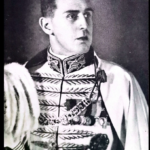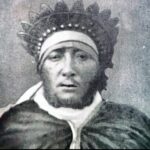OPOKU, THEOPHILUS
- 3 Min Read
Theophilus Opoku (1824-July 7, 1913) in 1872 became the first African to be ordained a pastor on Gold Coast soil by the Basel mission.
He was born at Akuropon in Akuapem, about 30 mi ( 48 km) north of Accra, to Yaw Dako, a linguist (chiefs spokesman), himself the son of Nana Addo Dankwa, the Omanhene (paramount chief) of Akuapem and to his wife Korantema. He was a sickly child and was often given up for death but recovered his health, and subsequently decided to attend school and become a Christian evangelist. He started school in 1851, when he became the houseboy of the Basel missionary Mader. He experienced initial difficulty because he considered menial work beneath him, and resented corporal punishment, which he felt should be reserved for slaves. Gradually, however, he accepted the discipline of the religious community, and was baptised in 1856.
He entered the Mission’s Theological Seminary at Akuropon in 1858. The gap between the primary school stage and the seminary had not yet been filled by the grammar school, so that pupils had to make a great effort to learn Greek, Hebrew, theology and other subjects at a very early age. His studies at the seminary were interrupted by a heart disease which plagued him for several years. He abandoned his studies and became a teacher at Mamfe near Akuropan but the disease made it difficult for him to continue teaching, so he was appointed a catechist in 1872, and stationed at Larteh south of Akuropon. The inhabitants there had wanted a white man, and were so disappointed to see an African that they took Opoku back to Akuropon. But he later returned and obtained the necessary cooperation to run the mission station there. He was ordained a pastor on September 1, 1872 by the Rev. I. G. Widmann. Opoku had married his first wife in 1868, and she had borne him three children but she died. Opoku was deeply affected by her death and did not recover until he remarried. His second wife, however, was asthmatic and this caused him great anxiety.
During his life as a pastor he travelled extensively, penetrating as far as what is now the Northern Region of Ghana in 1877. His diary of events at Salaga, published in the Christian Messenger in Basel in 1884, gave vivid details of the life of the “Northerners” (apparently the Gonja), the muslim religion and the ravages of the transSaharan slave trade in an account which was reminiscent of that written by the German explorer Dr. Gustav Nachtigal (1834-1885) during the same period. He and his colleague the Rev. David Asante, helped the Rev. J. G. Christaller to translate the Bible into Twi, and his unrivalled knowledge of the Twi language, which he had gained by virtue of his position as the son of the linguist of the Omanhene (paramount chief) contributed greatly to making the Twi Bible a literary masterpiece.
On his return from Salaga, he contracted smallpox. During his illness he composed a hymn which was still sung a century later by the Presbyterian congregation in what had become Ghana. In 1877, after his recovery from his illness, he was stationed at Kukurantumi in Akyem Abuakwa. He was transferred to Adukrom north of Akuropon in 1884, to Mamfe in 1891, and back to Akuropon in 1899. He died in 1913.
L. H. OFOSU-APPIAH




